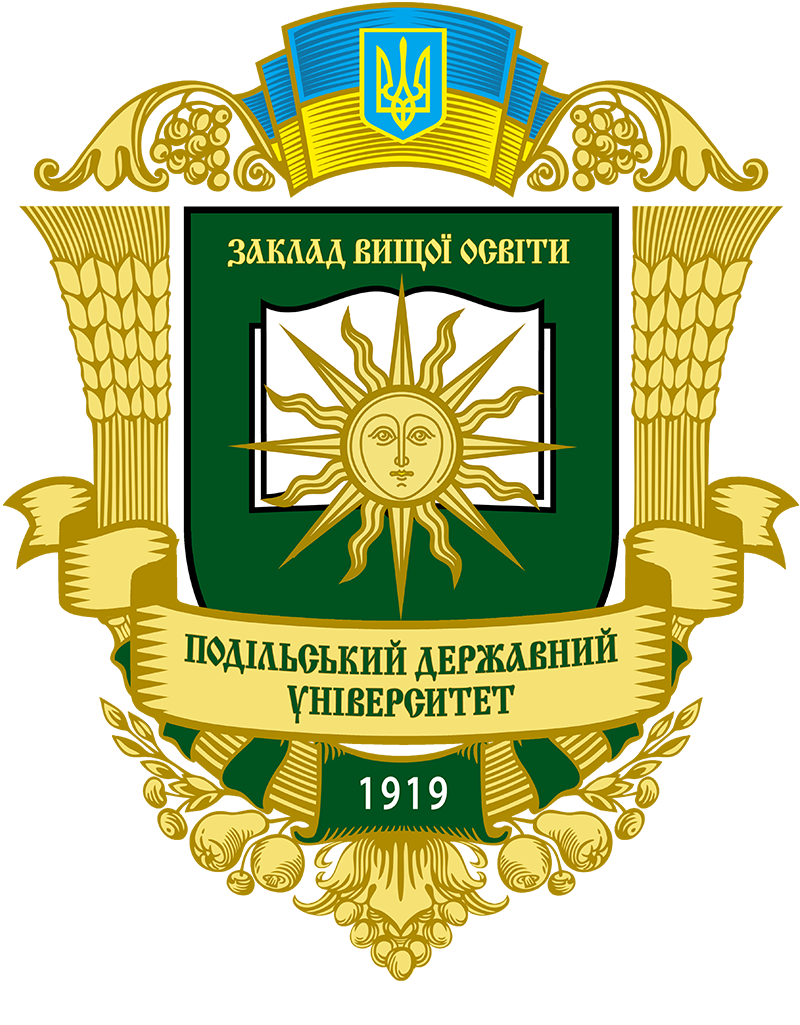Publication Ethics
The Editorial Board of the journal “Professional and Applied Didactics” strictly follows all guidelines and recommendations issued by Committee on Publication Ethics (COPE).
There are the key principles of publication ethics that authors, editors and reviewers of the Journal “Podilian Bulletin: agriculture, engineering, economics” should follow.
Responsibilities of the authors:
- Authorship standard
Authorship should be limited only to those who made a significant contribution to obtaining the results of the research (development of the concept, scientific idea, etc.). The author who submits the manuscript to the editorial board must guarantee that he has indicated all the co-authors, that they have seen and approved the final version of the manuscript and agree with its submission to the editorial board for publication. - One-time standard (inadmissibility of parallel publications)
The author should not submit a manuscript of a previously published article to the editorial office. He should also not submit the manuscript of the same article in the editorial office of several journals at the same time. - Standard of access to research raw data and their storage
The author is obliged to submit the original research materials (data) at the request of the editors and must be ready to provide public access to them. The author must retain this data for a reasonable time after publication. - The standard of originality and inadmissibility of plagiarism
The author must submit a completely original article to the editorial office. If he used the works or included in his article fragments from the works (citations) of other persons, then such use must be properly formatted (quotation marks, a footnote to the source of the citation, indicating the original source in the bibliography of the article).
Plagiarism in any form is unethical and unacceptable behavior of the author. - Standard for source verification
The author must correctly indicate in the bibliographic list the scientific and other sources that he used during the research and that had a significant impact on the research results.
The sources to which there are footnotes in the text of the manuscript of the article must be indicated in a mandatory manner. Information obtained from unofficial (private) sources (conversation, correspondence, discussions with third parties, etc.) should not be used. - Standard for correction of errors in published works
If the author discovers a significant error or inaccuracy in an already published article, he is obliged to immediately inform the editorial office and assist it in correcting the error. If the editorial office learns about an error from third parties, the author is obliged to immediately eliminate the error or present evidence of its absence.
Editorial responsibilities:
- All editors are responsible for maintaining of the published material quality, freedom of expression and academic honesty. Editors should try to constantly improve their journal, keep faithful to the principles of scientific honesty, and prevent commercial interests from compromising intellectual and ethical standards.
- Editors should strive to meet the needs of readers and authors. All editors must act in a balanced, objective and rightly while performing their duties without discrimination on the basis of gender, sexual orientation, religious or political beliefs, ethnic or geographical origin of the authors.
- In case of interest conflict or dishonest behavior, complaints of non-compliance with ethical standards, editors should act in accordance with established procedures and policies of the scientific community. They are obliged to allow authors to reasonably respond to any complaints or comments. The editors must keep all documentation related to similar complaints and comments.
- Editorial policies can evolve, override and change as necessary to maintain standards of scientific ethics.
Responsibilities of reviewers:
- Reviewers should contribute to the decision-making process for publishing materials and contribute to improving the scientific quality of the journal.
- Reviewers must maintain the confidentiality of any information provided by the editor or author. It is forbidden to save or copy manuscripts, to discuss materials with third parties who are not authorized by this edition.
- Reviewers should warn the editors about cases of plagiarism, submission of materials repeatedly, etc.
- Reviews should be carried out objectively. The reviewer must clearly, properly express his views and prevent personal complaints from the author.
- Reviewers should refuse to review in case of the possible interest conflict or the non-compliance of the submitted materials with their scientific interests.








